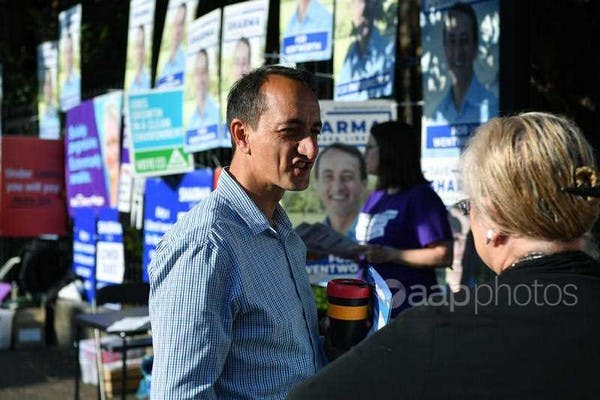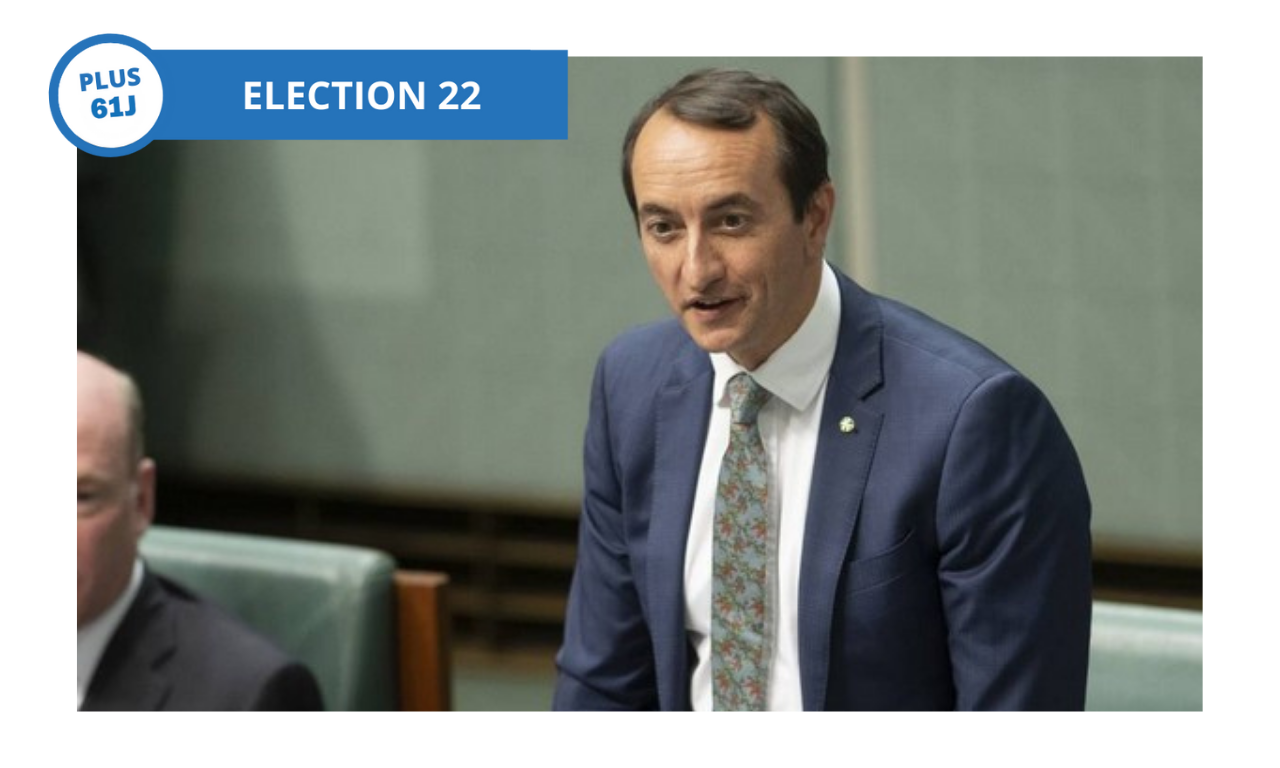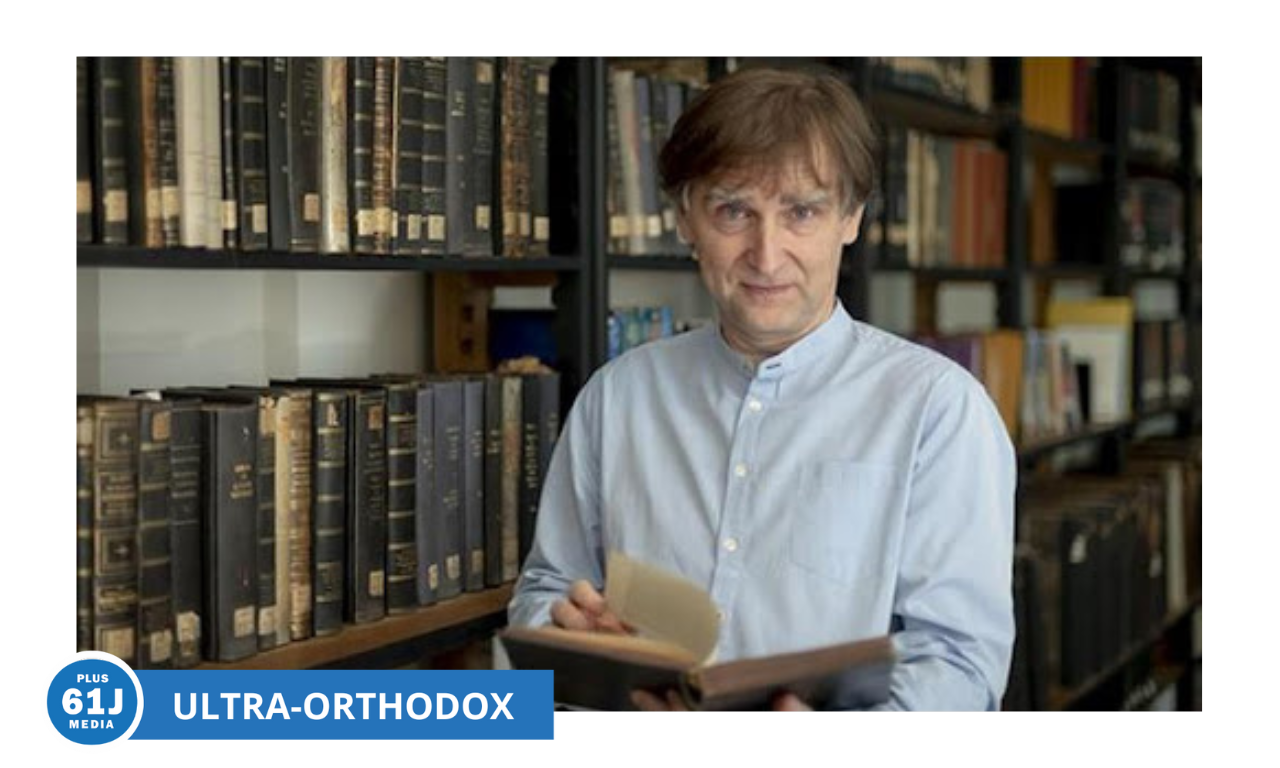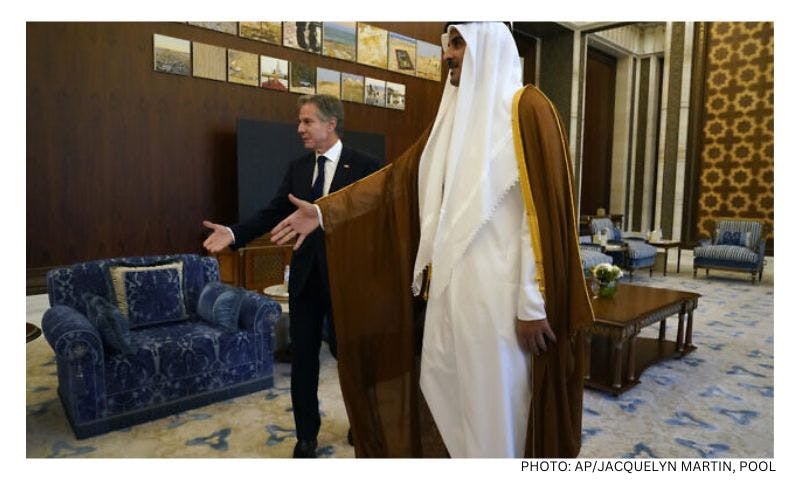Published: 11 March 2022
Last updated: 4 March 2024
ANNE SUSSKIND: The member for Wentworth says he is not afraid to vote against the government tide, is proud of his efforts to help locals get through the pandemic, and his convictions on Israel
THE FEDERAL MEMBER for Wentworth, Dave Sharma, describes himself as a “Modern Liberal”, conservative economically but socially and environmentally relatively progressive, a rebranding which first surfaced in the 2019 election. He says he has played a significant role in delivering the Coalition’s net zero emissions target. He crossed the floor in support of LGBTQI students and supports more women entering parliament. He is also passionate about protecting Australia’s Jewish community from antisemitism.
It’s a suite of attitudes of which many of his constituents will approve. The only really jarring notes in a 45-minute interview were his hardline (and contested) assertions on the unfortunate people still detained in Melbourne’s Park Street Hotel and other places, and the reiteration of a stern reprimand for Mike Burgess after the ASIO chief publicly warned politicians about using the fear of foreign interference in the run-up to the election.
Sharma says that since being elected to parliament three years ago, his biggest achievement has been getting the people and businesses of Wentworth, in Sydney’s eastern suburbs, through the all-consuming pandemic “intact”, helping them navigate public health orders, getting access to vaccinations, and bringing travellers back from overseas.
“Wentworth businesses are operating, people are still employed - it hasn’t been easy, people have had lots of difficulties, financial or employment, or isolation or loneliness or old age. As a community, we’ve pulled together and looked after our most vulnerable,” says Sharma.
Australia’s public health system, he says, has coped well and our economy is larger now than before the pandemic hit, with more people in jobs now.
“Our full-time score, when compared to other nations, is not too bad,” he says, citing Australia’s vaccination rate as one of the world’s highest, with very low case numbers and deaths by global standards.
For the next few months, his mind will also be exercised by the upcoming federal election. There are two things Sharma finds galling about his challenger for Wentworth, independent candidate Allegra Spender. The first is that he finds it a “little unsophisticated” to say that he usually votes with the nationals and Barnaby Joyce, referencing her interview with The Jewish Independent last month.
I promised that I would fight for more ambitious action on climate change and that’s what I delivered.
He points out that this was not the case with the recent sex and religious discrimination legislation, when he crossed the floor to vote in defence of LGBQTI students. On climate, Sharma prides himself in pushing along the move to reaching net zero carbon emissions by 2050. “The nationals hadn’t agreed with that, and [Barnaby Joyce] didn’t, and we won that argument internally as a coalition.
“I’d make the point here that if you work as part of a team, and this is how the major parties work, you often disagree, and you find a way forward internally so you can advance externally.”
Is he saying that he did his best on climate? “I did more than that. I promised that I would fight for more ambitious action on climate change and that’s what I delivered.
“We’ve now got a commitment, which no major party took to the last election, of reaching net zero by 2050, and record amounts of money invested in renewable energy and technology.” He is also, he says, fighting for an upgraded 2030 target.
“Ultimately, we said Australia will be worse off long term unless we take action now, not only for our own climate, but for our international reputation, our access to global capital and investment, the relationship with our major security partners.
“That’s how we convinced our colleagues, not only the nationals, but to be honest, rural and regional members of parliament.”

The second issue on which Sharma takes exception to Spender is her comment that she holds the same view as he does on Israel. “I don’t know if she knows what my view is, because she’s never asked me. My position is informed by the fact that I lived in Israel for four years and represented Australia to the state of Israel, and got to know the Jewish community all round Australia well in that time, and since.
“I had a unique understanding, personally, of some of the security challenges Israel faces, of its unfair and disproportionate treatment on the world stage and by the world’s media, of the worrying rise across the world, including Australia, of antisemitism, not only of the traditional political right but also these days, of the political left.”
Israel is not an apartheid state, Sharma says. Israeli Arabs have succeeded in parliament, the high court, the professions, business and industry. Arabic is an official language and, while there is discrimination, the 20 per cent of Israeli citizens who identify as Arabs have the same civil rights as Jewish Israelis. South Africa was different - separate and unequal on the statute books.
My position is informed by the fact that I lived in Israel for four years and represented Australia to the state of Israel, and got to know the Jewish community all round Australia well.
His views, he believes, are shared by most people who’ve had any kind of Jewish education or been to Israel. His most important obligation to the Jewish community, Sharma says, is to ensure they’re allowed to practice their traditions, their culture, and freedom of religion in safety, just as any other minority.
Another branding Sharma likes to use is that of “sensible moderate”, in his case one who has demonstrated that he has a considerable influence on government policy. Is treasurer and deputy PM Josh Frydenberg, (an old friend of his from before politics) also a sensible moderate?
“He can characterise his [own] views. But yes, by and large, I think Josh is a 'Modern Liberal'. He’s concerned about the issues of today and tomorrow, he’s tolerant and as a personality, accepting of difference and diversity and interested in what he sees, and what I see, as the big challenges facing Australia - national security and the external picture, and making sure our economy is prepared for the jobs and industries of the future.”
Frydenberg, he says, would be very well qualified, down the track, to lead the Liberal Party and Australia: “I think very highly of Josh, he was a friend of mine from before politics. I’ve known him over two decades; he’s someone who encouraged me to get into politics and whose advice and mentorship I still value very highly.”
Does he also describe Scott Morrison as a “sensible moderate”?
Sharma chooses his words carefully. “I think he leads from the centre, as you’d expect from any Liberal Party leader” and brushes off the idea that his leader’s recent ukulele interview was cringeworthy.
“People will often say, ‘We never see the personal side of you’ and then you show them the personal side, then people criticise you. Don’t look at personal traits, look at their record.
“There are lots of people who didn’t like John Howard when he was PM, who found his personal habits irritating or thought he was old-fashioned, but I think now people would say well, he ran a good government, right?”
Turning to the issue of women and politics, he says the Australian parliament should be as diverse as its population. “Part of that is gender, part is ethnicity, part is age, part of it is religion. I’m the only Australian of Indian origin in the parliament. Josh, Julian Leeser and a couple on the Labor side are Jewish - there are at least four which, given the size of the Jewish community, is not bad.
Sharma says the people in the Park Hotel 'are free to go back to their home country, but they’ve chosen not to'.
“Of the group I entered parliament with in the Liberal Party in 2019, at least half is female. That’s how we’ll make change, make sure that each intake is at least balanced.”
The Ukraine crisis has placed the plight of refugees under the spotlight again. We all feel for the Ukrainian refugees, but how does that sit with the treatment of other refugees stuck in Australian hotels and offshore?
Sharma is adamant that the people trapped in Melbourne hotels are not refugees. “Australia will always protect anyone found to be a refugee and in need of protection. [The people] who are in an unenviable and unviable long-term situation in hotels in Melbourne… have been found by independent determination not to be under a protection obligation… not to be refugees under the definition of the law.”
The CEO of the Refugee Council, Paul Power, says Sharma is wrong. Most of the people in the Park Hotel have refugee status, he told The Jewish Independent, and says he is surprised to hear that Sharma is “making the same statement as the PM did in January, which - a couple of days later - he then denied having made”.
Sharma says the people in the Park Hotel “are free to go back to their home country, but they’ve chosen not to.”
He had stern words, too, for the head of ASIO, Mike Burgess, slapping him down for his recent comment that it was “not helpful” when international tensions were politicised in the lead-up to an election. ASIO’s only role, Sharma says, should just be to give advice to elected representatives, who will make the decisions.
“I will always welcome their advice, the head of ASIO and any number of other spy chiefs. But I’m not going to self-censor because they say a topic is too dangerous to discuss. Australian democracy and public debate deserve better than that.”



